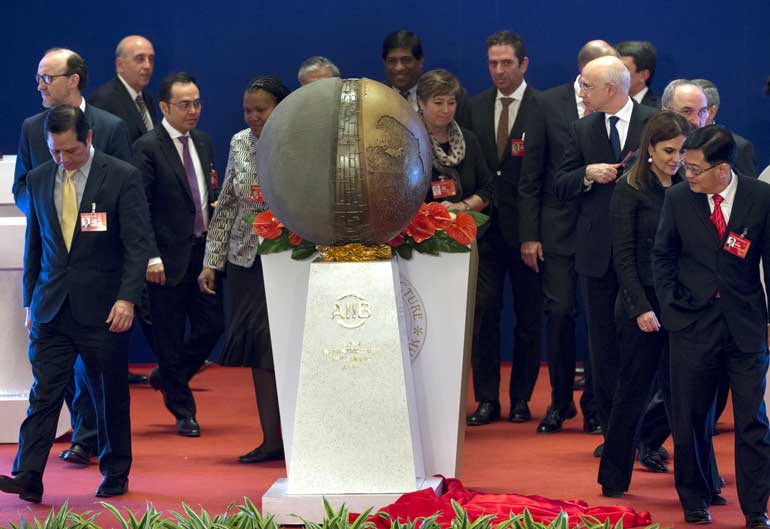Sunday Feb 15, 2026
Sunday Feb 15, 2026
Monday, 18 January 2016 00:00 - - {{hitsCtrl.values.hits}}

Disagreements in the boardroom are unavoidable. Especially when the board has independent-minded, skilled and outspoken directors, each contributing expertise and talent that is relevant for the future of the company. A board that never argues or disagrees is most likely an ineffective board that is neither fulfilling its oversight function nor carrying out its duty of care. Yet if boardroom disagreements are not dealt with properly, they can escalate quickly into public matters that can have severe, long term consequences for the company and its stakeholders.
Most of today’s directors belong to a league that was not tutored in communication skills or the ability to handle interpersonal relationships with caution and with empathy. This is one of the most important competencies required to successfully negotiate work and life. Not a single objective can be accomplished in the boardroom without the active and enthusiastic co-operation of every director.
The Sri Lanka Institute of Directors (SLID) in its efforts to contribute to the professional advancement of directors and in promoting practices that are beneficial to directors and their organisations, is conducting a Master Course on “Managing Difficult Conversations on the Board” targeting directors. This is a highly interactive course that focuses on building interpersonal dispute resolution skills for board directors. It is designed to help directors understand board conflict and conflict styles, and it covers difficult scenarios that directors often encounter, strengthening the board’s deliberations, decision-making, board evaluation discussions and overall performance.
This practical workshop is being conducted by SLID together with the International Finance Corporation (IFC) Corporate Governance Group, who are advisors on all aspects of corporate governance and offers targeted client services in areas such as increasing board effectiveness, improving the control environment, and family business governance.
The course is designed by Centre for Effective Dispute Resolution (CEDR), which is Europe’s largest independent Alternative Dispute Resolution service and the leading negotiation and conflict management trainer, internationally acclaimed for its Mediator Skills Training. It also consults globally on civil justice reform and helps businesses develop conflict management systems.
The course includes the following sessions:
Through case analysis and interactive learning exercises, participants will practice the leadership skills required to manage disputes and difficult conversations on the board. Selected participants will have a unique opportunity to receive confidential one-on-one consultation with a professional experienced mediator.
The program will be held on the 20th& 21st of January 2016 at Galle Face Hotel Colombo.
Four foreign experts from these organisations will be flying down to handle the training.
James South, CEDR: As CEDR’s Director of Training and lead trainer of the CEDR training faculty, James has extensive experience in the training of mediators, lawyers, judges and other business professionals both in the UK and many other jurisdictions. He holds a Masters in Law (Distinction) in Dispute Prevention and Resolution from University of Westminster, London and is currently a lecturer on the International Commercial Mediation module of the Masters program at University of Westminster. James is a Barrister and Solicitor of the High Court of New Zealand. He has over 10 years’ experience as mediator in a wide range of disputes in different contexts and jurisdictions
Susanne Schuler MA, BA (Hons) (CEDR): Susanne holds a BA (Hons) degree in Law from the University of Regensburg, Germany and the University of Málaga, Spain in addition to MA and BA (Hons) degrees in Linguistics from the University of Saarbrücken, Germany and Brussels, Belgium. Susanne has trained over 1,000 delegates from more than 30 different nationalities in mediation, conflict management, negotiation techniques and diversity & inclusion. Her legal studies, business experience and her work in diversity combine effectively in her mediation role. Susanne’s work covers corporate and commercial mediation as well as community mediation.
Alexey Volynets (IFC): Alexey is a Knowledge management officer at IFC Corporate Governance Group. He leads the IFC Corporate Governance Dispute resolution practice group, and has been instrumental in the development of the group’s training programs and materials. Alexey has extensive experience in designing knowledge sharing and capacity building programs and products, including lessons –learned and good practice guidance, training programs and knowledge sharing events.
Vladislava (Slava) Ryabota, PhD (IFC): Slava is a Regional Corporate Governance Lead for South Asia at IFC. As a Regional Corporate Governance Lead for South Asia she serves as the main point of contact in the region for both Corporate Governance investment support and all advisory services operations, including assistance to IFC investment clients. Slava graduated from the Law Faculty of Kyiv National Taras Shevchenko University in 1993. She continued her education at Essex University, UK. She holds a PhD degree on mergers and acquisitions and is a mediator accredited by the Centre for Effective Dispute Resolution in UK.
To participate at this program please contact SLID on 0112301646/8 or email to [email protected]